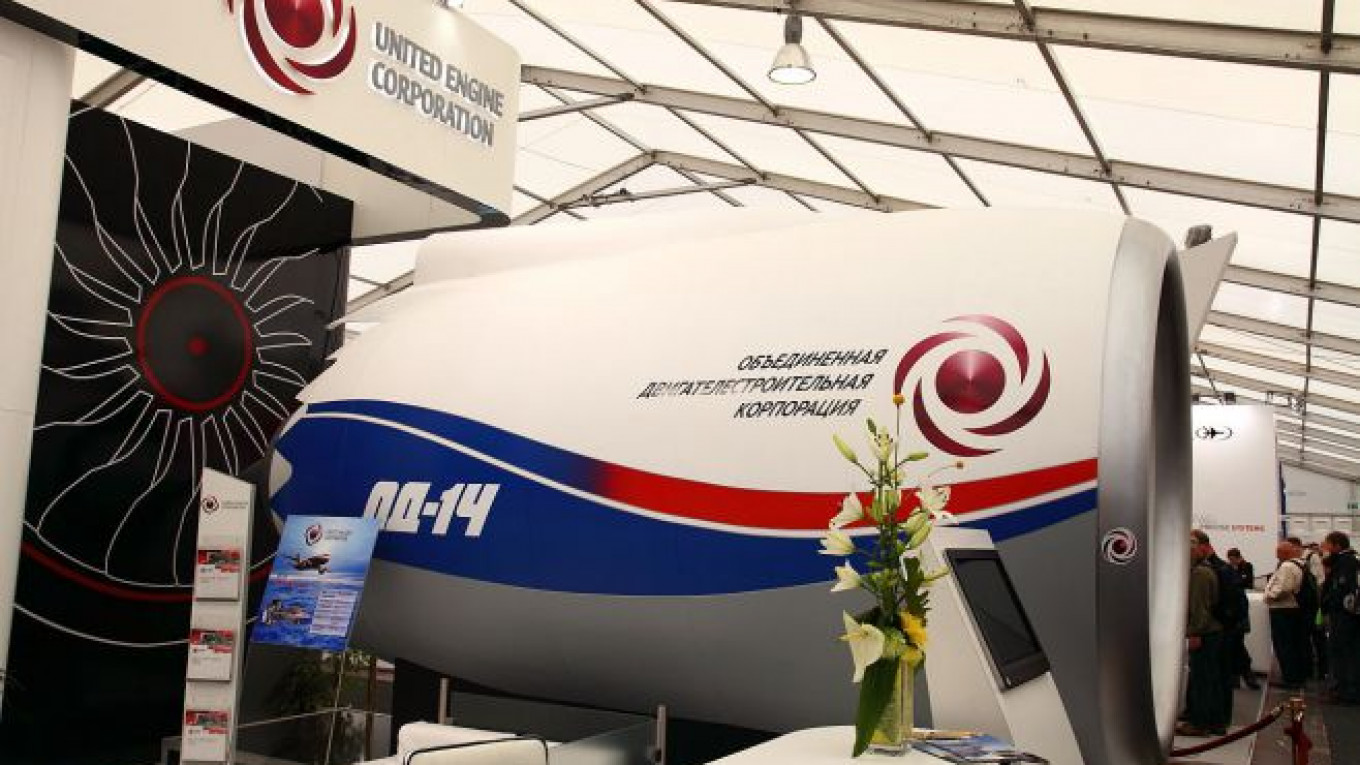The Russian government will backstop a 3.3 billion rubles ($92 million) bond issue by state aerospace conglomerate Oboronprom to finance the development of new civilian aircraft engines to power domestically designed airliners, a statement on the Cabinet's website said Monday.
The move is part of a drive by Moscow to curtail Russia's dependence on global markets, particularly in the defense and aerospace industries, prompted by the sanctions tit-for-tat unfolding between Russia and the West over the crisis in Ukraine.
The government order, published on Monday, aims to help Oboronprom raise funding by guaranteeing the company's bonds. The money will "finance the development of advanced PD-14 and PD-10 engines for next-generation passenger aircraft," namely the Irkut MC-21, the statement said.
Talk of boosting the use of domestic civilian aircraft has been on the rise. Most of the planes flown by Russian airlines are Boeing and Airbus models leased from abroad — making them vulnerable to U.S. and EU sanctions. Budget carrier Dobrolyot, a subsidiary of Aeroflot, was forced out of business two weeks ago, when its blacklisting by the EU nixed its plane leasing agreement with Irish lessor AWAS.
The MC-21 is a twin-engine, medium range airliner intended to replace the aging Tupolev Tu-154 and Tu-204. It will be a competitor to the massively successful Airbus A320 and Boeing 737 aircraft.
The first prototype of the MC-21 was initially supposed to fly in 2014, but the date has been pushed back to 2015. Production models should hit the market by 2017, assuming there are no further delays in the project.
See also:
EU Sanctions Force Dobrolyot to Suspend Flights
A Message from The Moscow Times:
Dear readers,
We are facing unprecedented challenges. Russia's Prosecutor General's Office has designated The Moscow Times as an "undesirable" organization, criminalizing our work and putting our staff at risk of prosecution. This follows our earlier unjust labeling as a "foreign agent."
These actions are direct attempts to silence independent journalism in Russia. The authorities claim our work "discredits the decisions of the Russian leadership." We see things differently: we strive to provide accurate, unbiased reporting on Russia.
We, the journalists of The Moscow Times, refuse to be silenced. But to continue our work, we need your help.
Your support, no matter how small, makes a world of difference. If you can, please support us monthly starting from just $2. It's quick to set up, and every contribution makes a significant impact.
By supporting The Moscow Times, you're defending open, independent journalism in the face of repression. Thank you for standing with us.
Remind me later.


